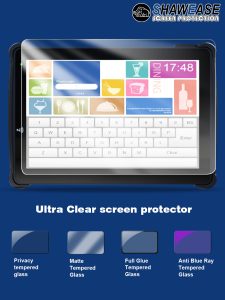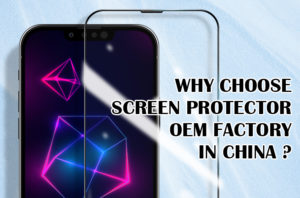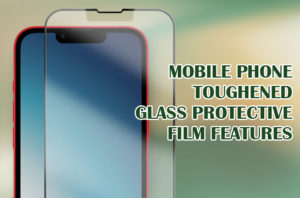Probably the only physical privacy tip we all know is the advice to never write down passwords. But there are more tangible ways to protect your data than just that. For example, privacy screen protectors are relatively new fashion. But do you need one? And if so, how do privacy screen protectors work?
What Is A Privacy Screen Protector?
A screen protector with privacy is a cover that goes on your smartphone, tablet or laptop’s screen and that — through advanced technology — reduces the angle at which people can see what happens on your screen. Now for someone to read something helpful, they would have to look directly at your screen to see what’s on it.
Most privacy screen protectors work by layering on technology called micro-louver; it focuses light precisely where you need it to be, keeping your screen private. Others use tempered glass for the protective screen, protecting your phone’s display too. SHAWEASE is a leading manufacturer in this technology, and we stock a range of privacy screen protectors for iPhone and other makes – Samsung, Huawei, Xiaomi, Vivo and several other devices.
These screen protectors are essential when you’re surfing on a public unsecure connection as these are the places where identity theft and other hacking activities are most likely to occur. Their working mechanism is pretty amazing, and they will help keep your browsing private from prying eyes.

How Does Privacy Screen Protector Work?
Privacy screen protectors use a special filter (the privacy filter) that allows light to pass through from certain angles. This is comparable to what you would find in traditional window blinds. Except the blinds are set to a narrow forward angle, allowing you to see everything clearly while people sitting near you cannot see the content of your screen. All they see is a darkened/blackened screen. In the case of Tech Armor Screen Protectors, the viewing angle is straight on, but not from the sides. In other words: Only you see what you really want to see and no one else.
Privacy filters are a simple way to keep strangers from seeing what’s on your phone or tablet. And they’re available for laptops too, so you can work on your computer anyplace without having to think about anything but working. These are especially helpful if you need to handle some important documents, email, etc., when working on public transit. Or just want to browse your device privately.

How To Choose The Best Privacy Screen Protector?
Now that you’re familiar with how a screen protector works, you probably have a few ideas on how to pick out the best one. Still, there are some things to consider:
- Tempered glass or film – This is a personal preference regarding the type of display protection you’re looking for. Both can have privacy layers. Tempered glass is much better when it comes to protecting the display, though.
- The privacy method: Some privacy screen protectors use some micro louver technology. These give you a better viewing experience than other options, which use only clear glass or film.
- The angle: How much coverage do you want? Sure, you can see everything by looking directly at your screen but will you settle for a 45-degree angle from all sides or go for 30-degree angle?
- Additional features: The following is just one of the many options offered by various brands. Besides offering full screen protector, some include extra features like anti-glare and blue light . So choose what’s right for you and your wallet.




